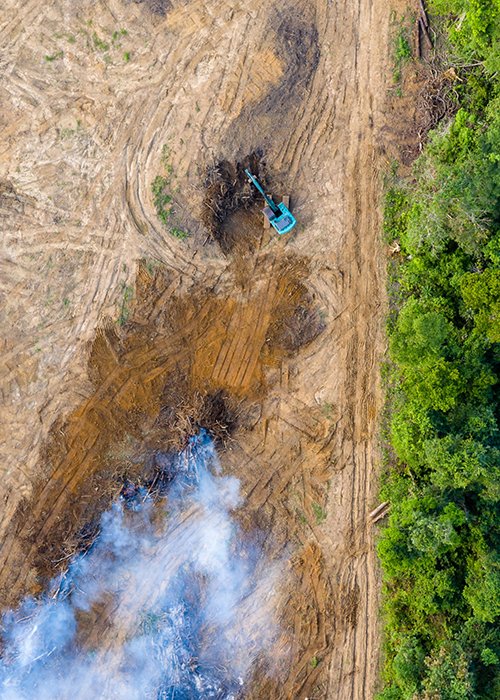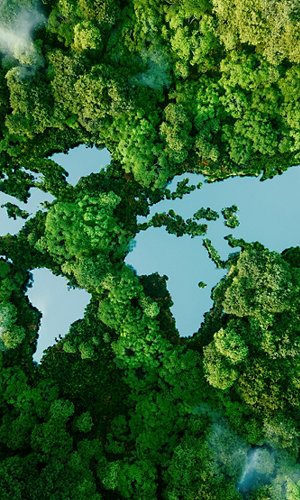In 2020 we destroyed an area of tropical forest equal to 12.2 million hectares, slightly larger than the size of Bulgaria. Compared to 2019, this is an increase of 12%. These are the findings of the latest Global Forest Watch by the World Resources Institute.
The situation is particularly critical in humid tropical primary forests, where rainfall is over 200 centimetres per year and temperatures are high all year round. These ecosystems, as well as relying on delicate balances, are crucial for the conservation of biodiversity and absorption of carbon dioxide. Considering that 4.2 million hectares were destroyed in the space of just one year, the increase in atmospheric CO2 is 2.64 gigatons, equivalent to the emissions of 570 million cars; more than twice the number of cars on the road in the United States.
Brazil’s figures are the most worrying, with 1.7 million hectares destroyed in 2020, putting it at the top of the deforestation ranking, up 25% on the previous year. Just as in 2019, fires in the Amazon caused serious losses in 2020, with the difference that, while in 2019 the fires were mainly in areas already deforested so that they could be turned into farmland and pasture, in 2020 many more fires broke out in the heart of the tropical forest.
In second place is the Democratic Republic of Congo, with only 490,000 hectares destroyed, a far lower figure than in Brazil. More comforting news comes from South-East Asia, where forests are usually burnt to make way for oil palm plantations. After the 2015 environmental disaster, which saw 120,000 fires in Indonesia, the government issued a temporary moratorium on new oil palm plantations and a permanent moratorium on conversion of forests and peatlands to farmland. Similarly, Malaysia, which has lost about one-fifth of its primary forests since 2011, capped plantations in 2019 and toughened penalties for illegal logging. These initiatives seem to have worked, so much so that in Indonesia and Malaysia the rate of deforestation has been declining, with respectively 270,000 and just under 73,000 hectares of tropical forest destroyed in 2020.



